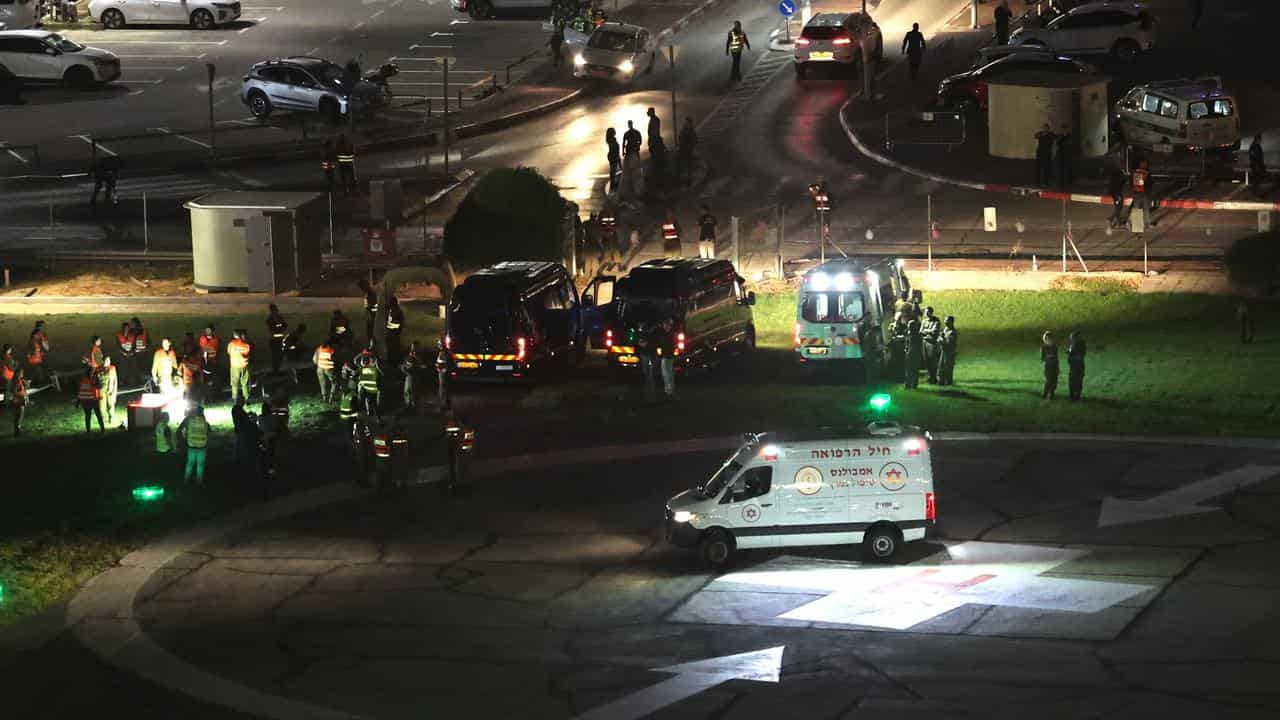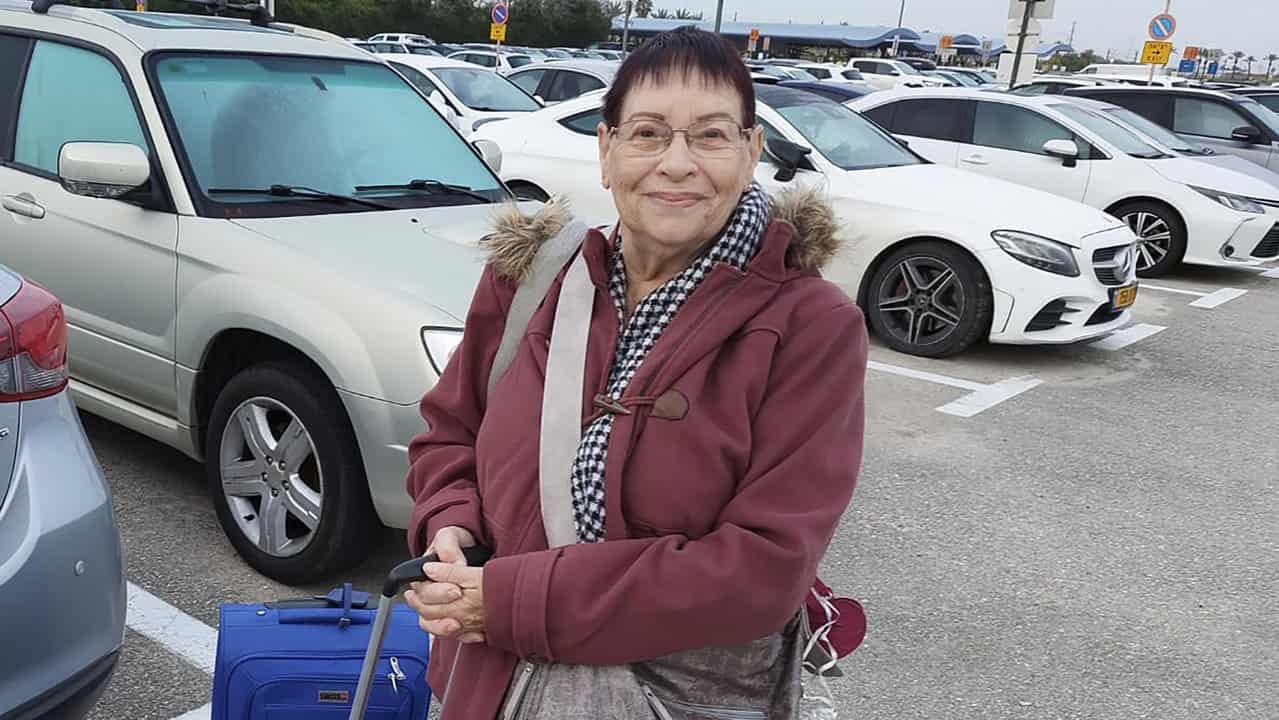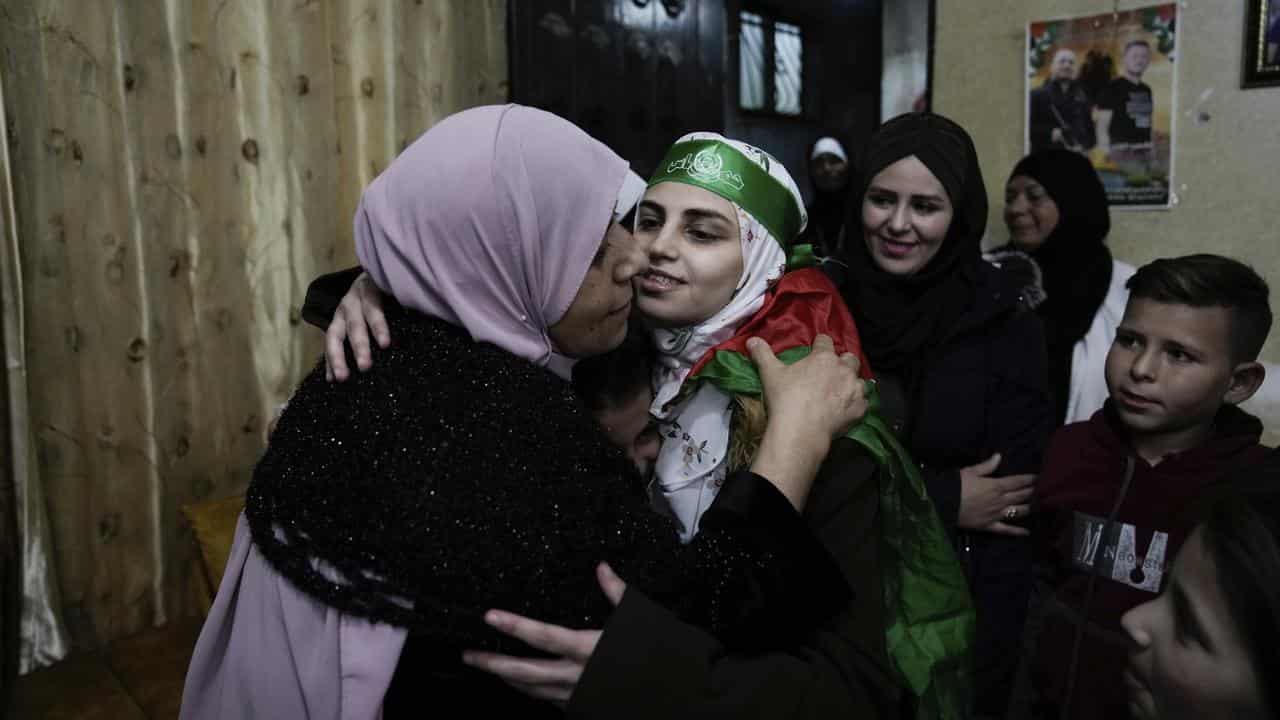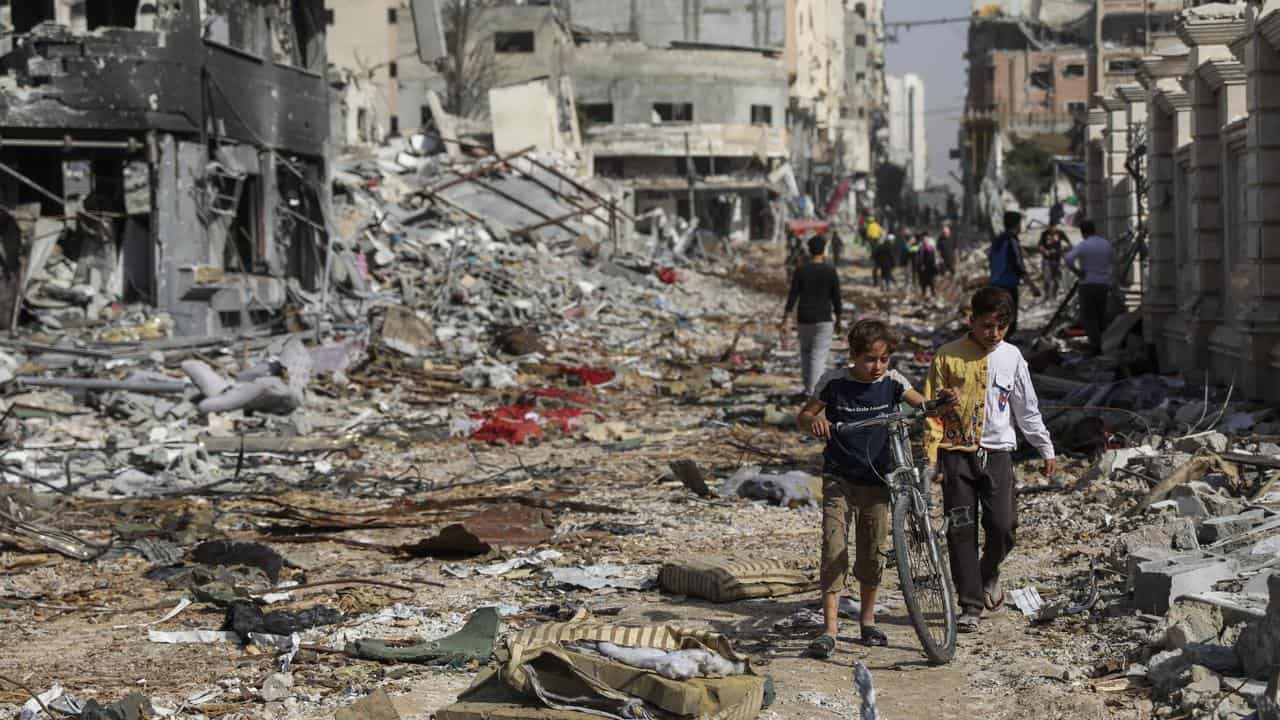
Hamas is expected to release a second group of Israelis as a planned four-day truce to allow an exchange of 50 hostages for Palestinian prisoners continues to hold in the besieged Gaza Strip.
Egyptian security sources said on Saturday they had received the names of 14 Israeli women and children from Hamas and were waiting for more details on when the hostages would be handed over to Egyptian authorities.
Israeli security officials were reviewing the list, although the office of Prime Minister Benjamin Netanyahu did not confirm the number or timing of the expected release.

Earlier, Israeli prison authorities said they were preparing to release 42 Palestinian detainees, in line with the terms of the Qatari-brokered accord agreed last week.
Under the truce - the first break in the seven-week war - 50 women and children held by Hamas are to be released in stages across four days in return for 150 Palestinian women and children who are among thousands of detainees in Israeli jails.
Hamas fighters freed 24 hostages on Friday - 13 Israelis, 10 Thai farm workers and a Filipino - and 24 Palestinian women and 15 teenagers were later released from Israeli detention.
The former hostages underwent medical checks before returning for emotional reunions with relatives in Israel, where happiness mingled with concern for those still held by militants in Gaza.
Both sides have said hostilities would resume as soon as the truce ends, although United States President Joe Biden said there was a real chance of extending the truce.
He said the pause was a critical opportunity to get humanitarian aid into Gaza and declined to speculate on how long the Israel-Hamas war would last.

Israel has vowed to destroy Hamas after its fighters killed 1200 people and took about 240 hostages after they broke through security barriers around the Gaza Strip and rampaged through Israeli communities around the blockaded enclave.
Since then, Israel has rained bombs on Gaza, killing about 14,000 people, roughly 40 per cent of them children, Palestinian health authorities say.
Hundreds of thousands of Gaza's 2.3 million people have fled their homes, including most of those in its northern half.
With the truce now silencing the guns, more aid has begun to trickle in.
Four tankers of fuel and another four containing cooking gas entered the southern Gaza Strip via the Rafah crossing early on Saturday, Israeli authorities said.
The Palestine Red Crescent Society said 196 trucks of humanitarian aid carried food, water and medical supplies through the Rafah crossing on Friday, the biggest such convoy into Gaza since Hamas' October 7 assault on Israel.
Aid groups have used the truce to evacuate patients and health workers from some northern hospitals that have all but collapsed due to attacks and lack of fuel.
The World Health Organisation helped transfer 22 patients from Al Ahli Hospital to the south on Friday, its chief Tedros Adhanom Ghebreyesus said on social media platform X.
"To meet all the health needs in Gaza, much more support is needed and above all sustained ceasefire," he said.
In Israel, the families of hostages expressed mixed emotions, fearing for those left behind.
"I'm excited for the families who today are going to hug their loved ones," Shelly Shem Tov, the mother of Omer Shem Tov, 21, said in an interview with Israel's Channel 12, although he was not among those released on Friday.
"I am jealous and I am sad - mostly sad that Omer is still not coming home."

While 10 Thai labourers were released, Thailand said 20 of its nationals remained captive.
A source briefed on the negotiations said the Thai release was unrelated to the truce deal with Israel and followed a separate track of talks with Hamas mediated by Egypt and Qatar.
In Palestinian homes, the joy are being reunited with loved ones was tinged with bitterness.
In at least three cases, prior to the prisoners' release, Israeli police raided their families' homes in Jerusalem, witnesses said.
Police declined to comment.




